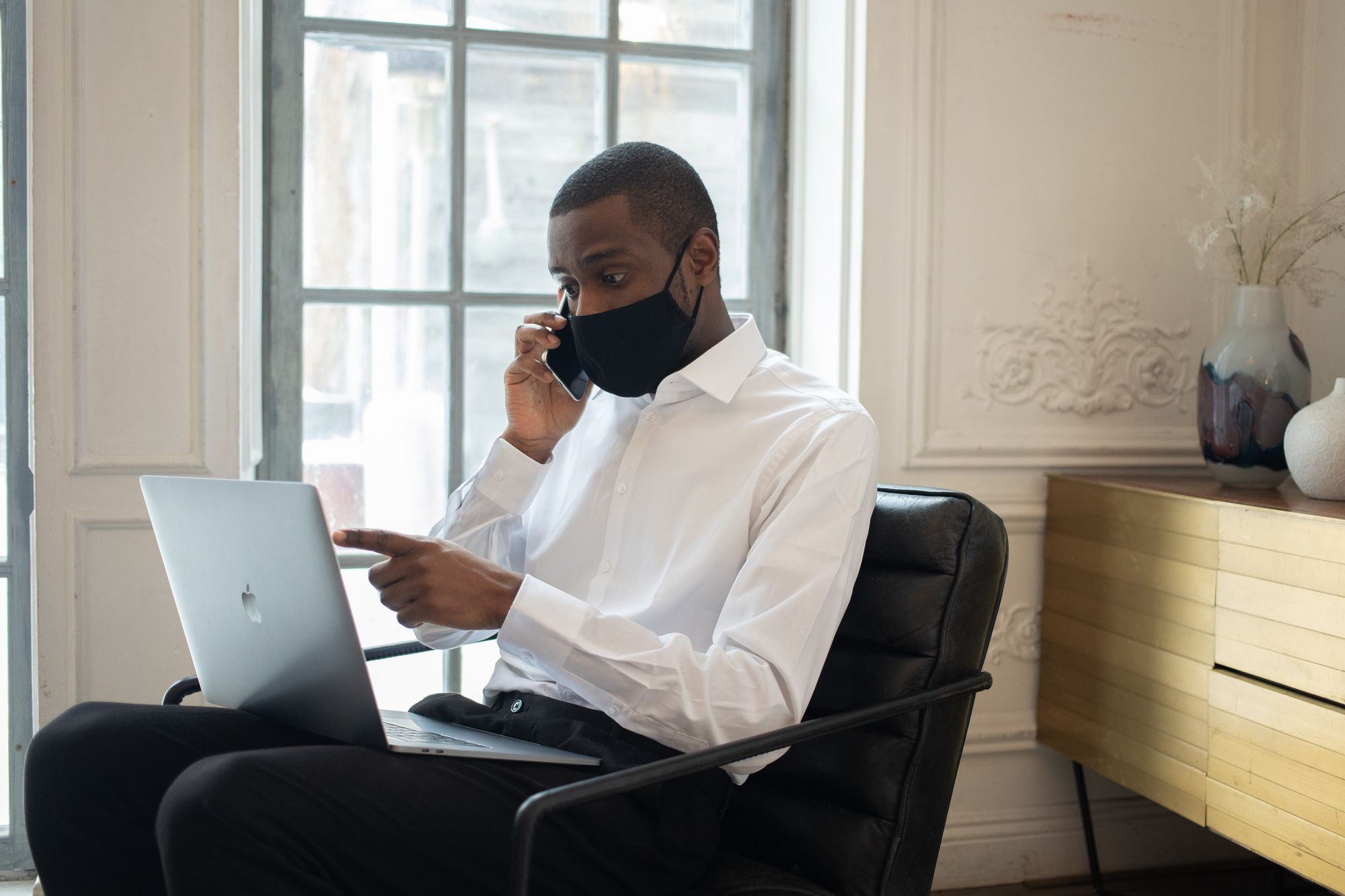What is ‘Pandemic Brain’ and How Has it Affected Workers?
Learn about ‘pandemic brain’ and its impact on corporate workers. Manah discusses how the pandemic brain is affecting the mental and physical health of employees.

COVID-19 devastated lives, economies, and health and wellbeing globally. While the infected faced health challenges, many people lost their loved ones, or lived with increased fear, uncertainty, emotional exhaustion, and a lot more. Recent COVID studies have brought to the forefront another major health challenge and it’s being called ‘pandemic brain’ in medical circles.
In this blog, Manah Wellness will talk about pandemic brain and some of the biggest challenges it has caused in the workplace. Let's first learn what pandemic brain is exactly.
What’s ‘pandemic brain’?
The term was coined by Harvard researchers exploring a possible connection between pandemic-related stress and disruptions (even in those who never got infected with COVID) and brain inflammation leading to mental health issues.
The preliminary research, done on a limited data set, suggests that societal, work and lifestyle disruptions may indeed have led to neuroinflammation, which could be the reason for many of the study participants reporting mood changes, mental and physical exhaustion, and difficulties in concentration.
In the workplace context, this is significant. Corporate workers have been especially vulnerable to pandemic-related stress, due to the sudden transition to remote work, limited offline interactions, disrupted work schedules, the upending of work-life balance, and high job-related uncertainty. For employers, this signals a need for greater sensitivity towards employees, especially those who have been under great stress in the last two years.
Now, let's look at the health challenges posed by the pandemic brain:
Health challenges of pandemic brain
The pandemic threw life out of gear and increased loneliness, uncertainty, fear and grief across the board. Corporate workers suddenly working from home were among those affected, directly or indirectly, by the spike in stress caused by the virus.
Scientists contend that symptoms like delirium, inattention, memory loss, fatigue, brain damage, and even stroke can occur due to changes triggered by the pandemic brain. Below are the biggest health challenges associated with the pandemic brain according to the preliminary research.

Brain fog
Stress and emotions share a deep relationship. The pandemic made corporate workers spend more time in their homes than usual. At first, it felt like a dream come true but as the time passed, confusion, tiredness, and imbalances came into the picture.
Lockdowns forced by COVID-19 affected cognitive efficiency and led to poor mental health which subsequently triggered a drop in productivity. Prolonged stress and anxiety can greatly increase the chances of pandemic brain fog. Brain fog can affect the mental health of workers in the following ways:
- Greater forgetfulness
- Limited attention span
- Tiredness
- Taking more time than usual to complete tasks
Brain fog shares the initial symptoms of dementia, but thankfully it fades away with the restoration of normal life and work.
Try Manah’s Wellbeing Challenges to improve engagement and teamwork!
Mental and physical fatigue
According to the Harvard study, mental and physical fatigue may be key symptoms of pandemic-related neuroinflammation.
Many employees don't perform well when dealing with stress, anxiety, and uncertainty because poor mental health limits their ability to think clearly and reduces active participation. That's why productivity and efficiency were greatly hampered in workplaces across the globe.
Depression
When COVID-19 was at its peak, prolonged stress became commonplace and many people started to feel symptoms associated with depression.
Workers across the globe reported low self-esteem, poor performance, and eroding mental as well as physical health. This is not surprising, as chronic stress diminishes prefrontal cortex activity and damages the neurons, adversely affecting decision making.
Here are some of the significant signs of depression in the corporate environment:
- Lack of social interactions due to lockdowns led to boredom and mental fatigue. It made employees more anxious.
- The performance pressure also rose as many jobs were at stake due to the economic crisis triggered by the COVID-19 pandemic.
- Employees with a medical history of anxiety and stress quickly fell prey to mental health challenges posed by the coronavirus.
The chances are that the COVID-19 pandemic has also affected the mental health of your workers.
Here's our guide to dealing with emotional breakdowns at work!

How to tackle pandemic-induced stress at work
Pandemic-induced stress was quite common in all sections of the population. The rules for tackling stress at the workplace or home, however, remain the same. Here are some tips and ideas to tackle pandemic-related stress at work.
- Calm yourself: Listen to soothing music, adopt a fitness practice, or get a relaxing hobby. A calm mind can greatly help check stressed thoughts and soothe the mind.
- Live more mindfully: Overthinking about your career, health, or your future can lead to stress, anxiety or depression. Living mindfully is the best medicine to deal with this constant overthinking.
- Spend time in nature: When overwhelmed with anxiety and fear, remember that the warm embrace of nature is always there. Cherish the sounds of nature and witness the birds while taking a leisure walk.
- Meditate on solutions: When troubled by stress and worries, dig deep in your brain to find a practical solution. Your brain's prefrontal cortex will help you clear the pandemic fog.
- Use technology: Map your daily activities, heart rate, pulse, and other health signals if you have a history of physical and mental health conditions. Guided meditation apps can help you too.
Maximise wellbeing at work with Manah Wellness
The last 2 years were tough and the rising COVID-19 cases are signaling that we cannot let our collective guard down. There is a chance that some of your employees are dealing with pandemic brain and related conditions. If they find it hard to concentrate, are low on morale, or feel anxious very often, it’s time for a health and wellbeing intervention. A Wellbeing Assessment is the easiest way to get started.
As an employee engagement and wellbeing brand, Manah Wellness provides innovative tools and professional support to dynamic startups, emerging businesses, and trusted brands. Our USP lies in offering preventive, proactive, and personalised wellbeing solutions.
Get in touch to discuss your corporate wellbeing goals.
Check out our recent knowledge resources as well:
Discover fun employee engagement activities for 2022
Discover 15 qualities of a good manager
Learn how to improve teamwork
Discover employee motivation strategies for 2022



